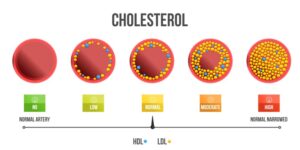Understanding Potato Allergies in Dogs: From Diarrhea to Sweet Potato Concerns

dog throws up at night
Dogs are known for their voracious appetites and their ability to eat a variety of foods. However, just like humans, dogs can develop allergies to certain foods, including potatoes. In this article, we’ll explore the world of potato allergies in our canine companions, shedding light on symptoms, causes, and management strategies.
Also Read:- Potato Allergies and Intolerances: From Babies to Bloating
1. Potato Allergy in Dogs: An Overview
While potatoes are often included in many dog foods and treats due to their nutritional value, some dogs might develop an allergic reaction to them. An allergy occurs when the dog’s immune system mistakenly identifies a protein from the potato as a threat, leading to a series of reactions.
- Symptoms: Common signs of potato allergy in dogs include itching, ear infections, skin infections, and gastrointestinal issues like diarrhea.
- Diagnosis: If you suspect your dog has a potato allergy, consult with a veterinarian. They might recommend an elimination diet to pinpoint the allergen causing the reaction.
2. Potato Allergy and Diarrhea in Dogs
One of the most noticeable symptoms of potato allergy in dogs is diarrhea. But how can you be sure it’s due to potatoes?
- Consistency and Frequency: Diarrhea related to food allergies can be frequent and might contain mucus or blood.
- Other Symptoms: Along with diarrhea, if your dog exhibits other signs like itching, skin rashes, or vomiting after consuming potatoes, it strengthens the case for a potato allergy.
- Management: If potatoes are the culprit, eliminating them from your dog’s diet should alleviate the symptoms. Always introduce any new food gradually and monitor for reactions.
3. Sweet Potato Allergy in Dogs
Sweet potatoes are often considered a healthier alternative to regular potatoes. They’re rich in vitamins and fiber. However, some dogs might be allergic to sweet potatoes.
- Symptoms: Similar to regular potato allergies, dogs allergic to sweet potatoes might experience itching, skin infections, ear infections, and gastrointestinal issues.
- Sweet Potato vs. Potato: It’s essential to differentiate between the two. A dog allergic to potatoes might not necessarily be allergic to sweet potatoes and vice versa.
- Management: If you determine that sweet potatoes are causing the allergic reaction, it’s best to avoid them in your dog’s diet. Consult with your vet about suitable alternatives.
4. Recognizing and Managing Dog Potato Allergy
Recognizing and managing potato allergies in dogs is crucial for their well-being. Here are some steps to take:
- Observation: Keep a close eye on your dog after introducing any new food. If you notice symptoms like excessive itching, redness, ear infections, or diarrhea, it might be due to an allergy.
- Consultation: Always consult with a veterinarian if you suspect your dog has a food allergy. They can provide guidance on diagnosis and management.
- Dietary Changes: If potatoes are identified as the allergen, you’ll need to make dietary changes. Read the ingredients list on dog food labels carefully. Opt for potato-free dog foods and treats.
- Alternative Foods: If you’re looking for alternatives to potatoes, consider other starchy vegetables like peas or carrots. However, always introduce new foods gradually and under supervision.
Conclusion
Potato allergies in dogs, whether related to regular potatoes or sweet potatoes, can be a concern for many pet owners. Recognizing the signs and understanding the difference between an allergy and a simple digestive upset is crucial. With careful observation and guidance from a veterinarian, you can ensure that your furry friend enjoys a diet that’s both nutritious and free from allergens. Remember, every dog is unique, and what works for one might not work for another. Always prioritize your pet’s health and well-being









